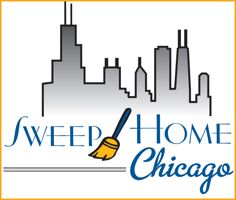Using Sustainable Cleaning Habits and Products for a Green Future
 You may already use “green” products when you clean, but the actual cleaning methods you use and the materials you use for cleaning may also be designed to reduce your family’s impact on the environment. You might be using a non-toxic cleaner to keep your kitchen spotless, but are you using half a roll of paper towels every time you clean up after a messy dinner?
You may already use “green” products when you clean, but the actual cleaning methods you use and the materials you use for cleaning may also be designed to reduce your family’s impact on the environment. You might be using a non-toxic cleaner to keep your kitchen spotless, but are you using half a roll of paper towels every time you clean up after a messy dinner?
Reusable Cleaning Tools You Need
If you’re serious about reducing your impact on the environment, eliminating all paper towels, plastic bags, and disposable cleaning tools is an important step in creating a sustainable environment in your home. Paper towels are handy for cleaning up messes, but they’re wasteful when compared to reusable cloths.
Repurposing Old Tools for Cleaning
Not everything is appropriate for the recycling bin, and several items that might otherwise end up in the trash can may actually find a second life as cleaning tools in your home. For example, don’t throw out your old toothbrushes. Instead, use them to clean tight spaces and scrub inconvenient areas.
Other old things that you can use to clean with that don’t need to go into the trash just yet include:
- Old clothing: if you can’t donate old clothing, use the scraps to clean really dirty messes.
- Dryer sheets: after a round in the dryer, toss them in your shoes to keep them smelling fresh.
- Newspaper plastic bags: after taking the Sunday paper out of its bag, reuse the bag.
- Wine corks: keep high-carbon kitchen knives clean by scrubbing them with wine corks.
- Tissue boxes: use them as little trash containers in your car.
Tip: Did you know you can compost your dust bunnies? They’re mostly organic matter anyway, and they don’t need to go to the landfill.
Sometimes Water Works Just as Well
While a cleanser may help clean your kitchen counters after they come into contact with raw meat, not every cleaning job in your home requires a spray bottle of cleanser.
For example, a well-made microfiber cloth and a cup of water are all you need to clean the dirt off windows. By using the absorptive properties of the microfiber cloths, you can remove the dirt and then scrub away any streaks with just a little pressure.
The next time you clean your windows, instead of using that familiar blue bottle of window cleaner, try a simple spray bottle of water and some reusable cloths to get the job done.
Rethinking Disinfectants
Additionally, consider eliminating the use of disinfectants used by your family uses in favor of a simple bar of soap. A recent study in “Swinburne’s Faculty of Life and Social Sciences” revealed that regular soap worked just as well at reducing the bacteria present in childcare centers as cleaning products filled with disinfectants. The same could be said for the bacteria in your home.
According to an article from the Australia and New Zealand science website Science Alert:
Childcare centres are used to cleaning with a range of substances, but in order to reduce the impact on the environment, using warm soapy water without all the other add-ons works just as well…
You may have heard recent news stories on the growth of “superbugs” and infections that are resistant to antibiotics. Antibiotics revolutionized the fight against infections, but scientists have started to warn the public about overuse of antibiotics and the harm of disinfectants.
According to an article from CNN on antibiotic use in humans:
Antibiotics are designed to kill bacteria that cause infection. However, in the process they can also kill so-called good bacteria (the human body hosts about 100 trillion).
Over-use of antibiotics as medication may lead to drug-resistant strains. Further on that idea, scientists have suggested that common disinfectants used in modern cleaning could also “train” superbugs to resist medication.
According to an article from BBC News:
Scientists in Galway found that by adding increasing amounts of disinfectant to cultures of pseudomonas aeruginosa in the lab, the bacteria learnt to resist not only the disinfectant but also ciprofloxacin – a commonly-prescribed antibiotic – even without being exposed to it.
Sustainable Practices Outside the Home
Hopefully, you’re already recycling everything you can in your home, and you’re reducing how much disposable packaging is coming into your home.
Do you really need those flimsy plastic bags at the grocery store to hold your celery and lettuce? Can you find fresh food that doesn’t require excessive packaging to use in place of prepackaged foods that use layer upon layer of plastic?
Further, can you walk to the grocery store (with a reusable bag, of course) instead of driving your vehicle? Weather, distance, and other factors might prevent you from “hoofing” it to the grocery store every few days. But, at the very least, you can make some smart decisions on your errands and the routes you use to reduce the overall mileage necessary to get things done.
Looking for a Green Cleaning Service?
Need to take care of a dirty house in need of some serious cleaning? At Sweep Home Chicago, we’re fully committed to providing the best quality cleaning services to each of our clients. We know you deserve a sparkling home. Get a Free Cleaning Estimate in the Chicago area today!
